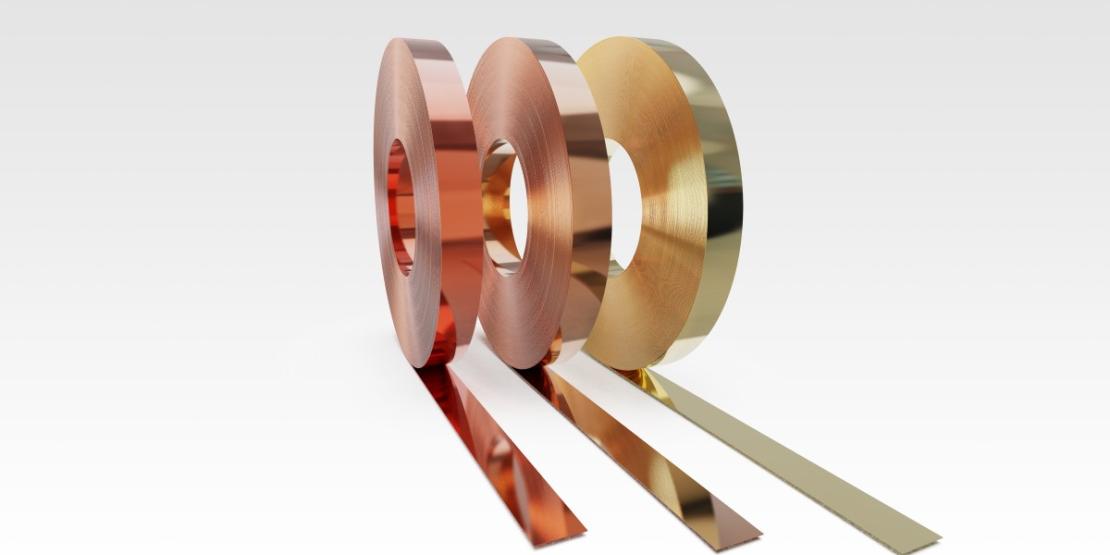Enhancing Your Kitchen with Premium Copper Products: Tips and Best Practices
Enhancing Your Kitchen with Premium Copper Products: Tips and Best Practices
Blog Article
Exploring the Diverse Applications of Copper Products in Modern Industries
From boosting the efficiency of electric systems to playing a crucial function in eco-friendly power innovations, the flexibility of copper is noticeable. As industries increasingly prioritize innovation and sustainability, the diverse applications of copper call for a closer exam, particularly concerning their possible impact on future ecological methods and technical innovations.
Electric Applications of Copper
Copper is an essential material in the electric market, making up approximately 60% of the total need for non-ferrous metals worldwide - Copper Products. Its remarkable electric conductivity, which is almost twice that of light weight aluminum, makes it the recommended selection for a vast array of electric applications. From electrical wiring systems in property and industrial buildings to high-voltage power transmission lines, copper ensures efficiency and dependability in electrical energy shipment
In enhancement to wiring, copper is indispensable to the production of electric components such as transformers, generators, and motors. These parts leverage copper's thermal conductivity and pliability, important for heat dissipation and efficient performance. Copper's resistance to corrosion enhances the life-span and sturdiness of electrical systems, making it a cost-effective remedy in the long term.
The development of renewable resource sources, such as solar and wind power, has actually additionally increased the demand for copper in electric applications. As industries shift towards sustainable power remedies, copper's function comes to be a lot more crucial. On the whole, the adaptability and performance characteristics of copper strengthen its condition as a keystone product within the electric industry, driving innovation and efficiency throughout numerous applications.
Plumbing and Piping Solutions
In modern-day pipes systems, the option of materials significantly influences both capability and durability. Copper has become a favored alternative due to its one-of-a-kind properties, including deterioration resistance and antimicrobial features. These attributes guarantee that copper piping stays long lasting and safe for moving potable water, a critical factor to consider in domestic and industrial applications.
Among the crucial benefits of copper in pipes is its ability to endure heats and stress, making it appropriate for a range of applications, from warm water systems to home heating and cooling down networks. Additionally, copper's versatility enables easier installation in complex piping formats, lowering the threat of leakages and failings.
Another noteworthy benefit is copper's lengthy life expectancy, commonly surpassing 50 years with correct maintenance. This durability not only minimizes replacement prices but also adds to lasting methods by decreasing waste. Additionally, copper's recyclability aligns with modern-day ecological requirements, promoting a circular economic climate within the plumbing industry.
Copper in Renewable Resource
The convenience of copper prolongs beyond pipes applications, playing an important role in the renewable resource field. Its exceptional electrical and thermal conductivity makes it an essential material in the manufacturing and circulation of renewable resource sources, particularly solar and wind power. In photovoltaic panels, copper is used in photovoltaic cells and circuitry, assisting in effective energy Your Domain Name conversion and transmission. Its resistance to corrosion makes sure lasting performance, which is crucial for making the most of energy outcome over time.

Moreover, as the worldwide demand for electric vehicles (EVs) rises, copper's duty in battery systems and billing facilities ends up being much more substantial. The product's capability to conduct electrical power successfully is indispensable to the efficiency of EV batteries, enhancing range and billing rate.
Copper's Duty in Electronic devices
Electronic devices producing relies greatly on copper's exceptional buildings, particularly its high electric conductivity and thermal effectiveness. These qualities make copper a perfect choice for a wide variety of digital components, consisting of ports, circuit boards, and circuitry. The steel's capability to effectively transmit electrical signals makes certain minimal power loss, which is essential in high-performance digital gadgets.
Moreover, copper's thermal conductivity plays a considerable function in heat dissipation, shielding sensitive parts from overheating. This is especially vital in contemporary electronic devices, where compact styles lead to enhanced heat generation. Copper is likewise favored for its pliability and ductility, enabling it to be easily shaped into complex layouts that satisfy the demands of sophisticated electronic applications.
With the rise of customer electronic devices, telecommunications, and electrical lorries, the demand for copper in the electronics field continues to grow. As innovations in technology evolve, copper stays indispensable to achieving higher efficiency and dependability in digital products. Its recyclability additionally boosts its appeal, as producers look for sustainable solutions without endangering quality. Hence, copper stays a keystone product in the ever-expanding field of electronics.
Innovative Uses in Manufacturing

One significant application is in additive production, where copper-based materials are used in 3D printing processes. This enables for the creation of lightweight parts and complex geometries, especially in the aerospace and automobile sectors. Furthermore, copper's thermal conductivity makes it an ideal option for heat exchangers, enhancing efficiency in commercial cooling systems.
In addition, the rise of wise production has seen the unification of copper in IoT tools, where its conductive abilities sustain sophisticated noticing modern technologies. In the realm of sustainable energy, copper is pivotal in the production of photovoltaic panels and wind generators, helping with a lot more reliable energy conversion and distribution.
As sectors pursue sustainability and advancement, copper's versatility and performance continue to place it as a critical product, driving advancements in manufacturing and Recommended Reading contributing to the advancement of smarter, a lot more reliable items.
Verdict
The essential duty of copper in eco-friendly energy and its vital function in electronics emphasize its relevance in progressing sustainable techniques. Collectively, these applications illustrate copper's critical payment to technological progression and industrial efficiency in modern culture.
From improving the efficiency of electric systems to playing a crucial duty in sustainable energy modern technologies, the convenience of copper is obvious. As industries progressively prioritize innovation and sustainability, the varied applications of copper require a closer exam, especially regarding their prospective influence on future technological innovations and ecological practices.
The growth of sustainable energy resources, such as solar and wind power, has actually additionally enhanced the need for copper in electrical applications. On the whole, the flexibility and efficiency qualities of copper solidify its condition as a keystone material within the electric sector, driving development and performance across various applications.
The flexibility of copper expands beyond plumbing applications, playing an essential role in the web link sustainable power sector.
Report this page